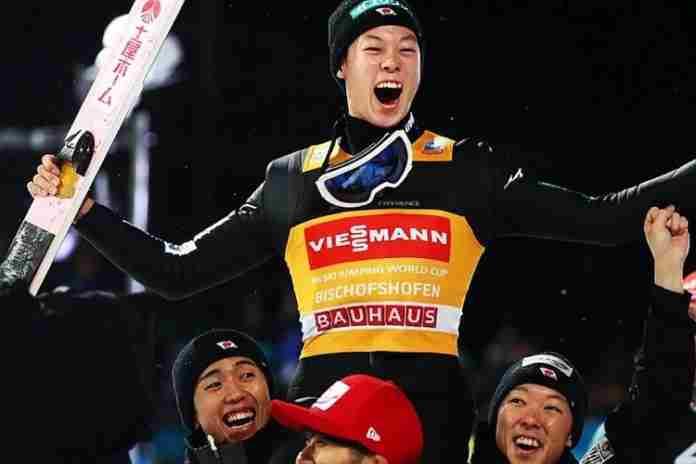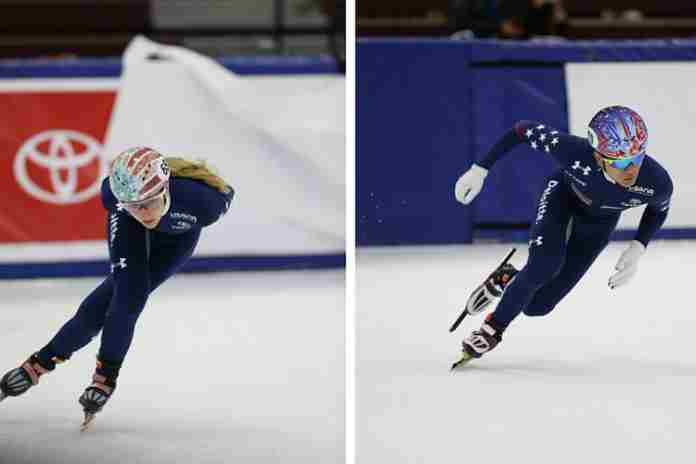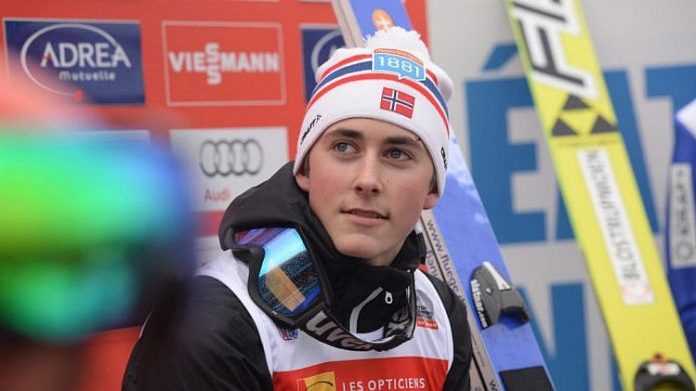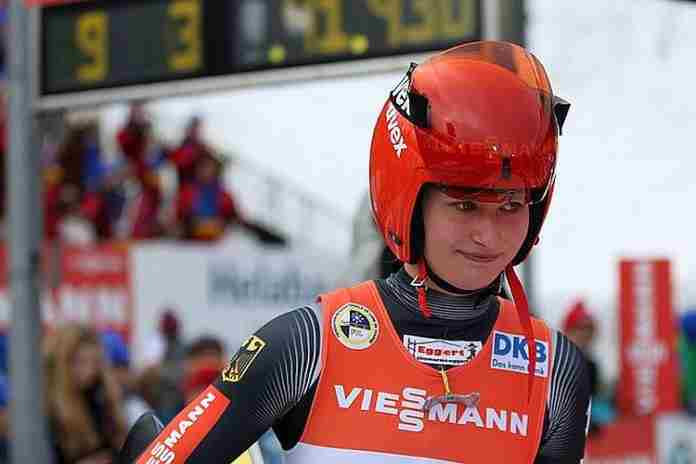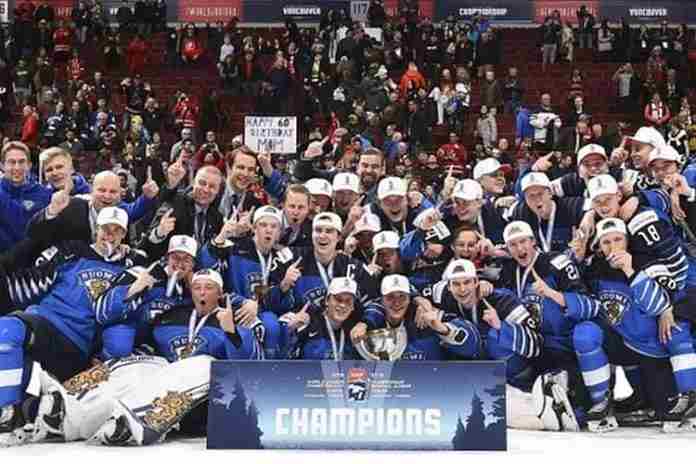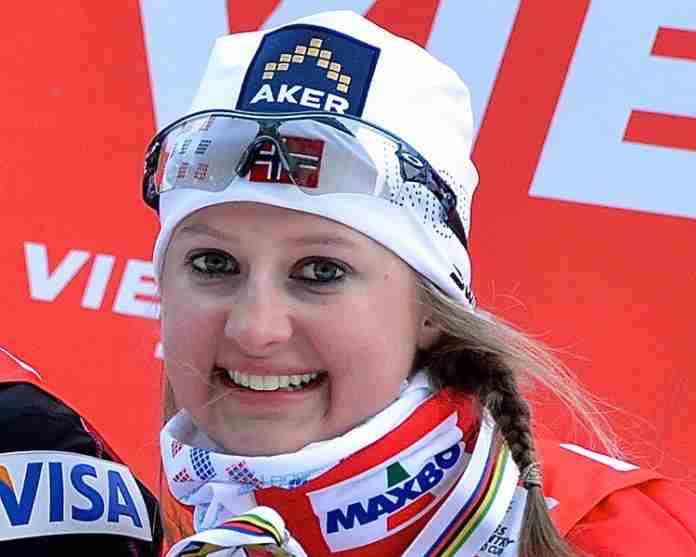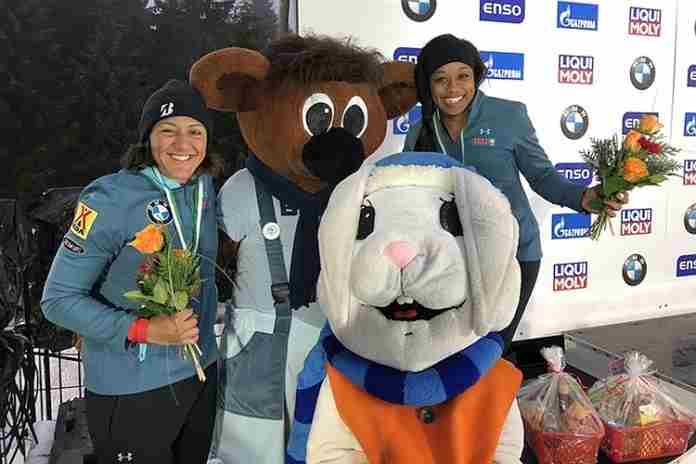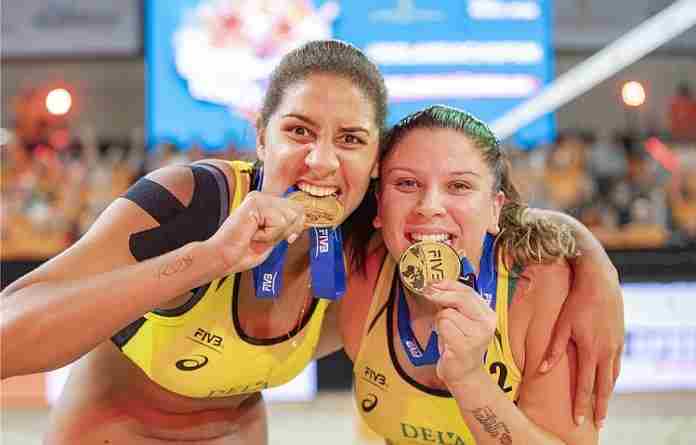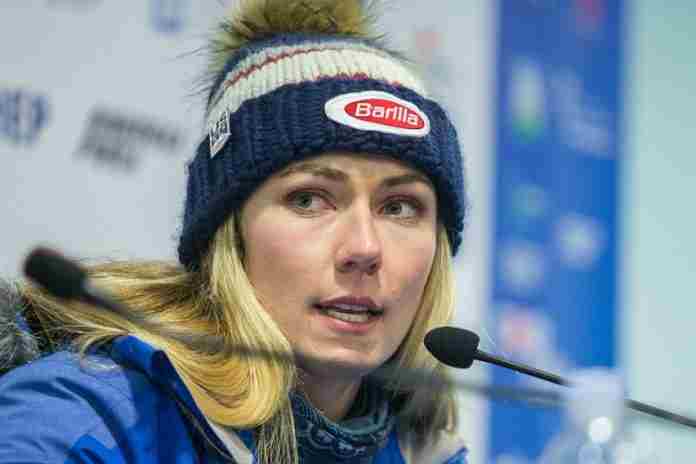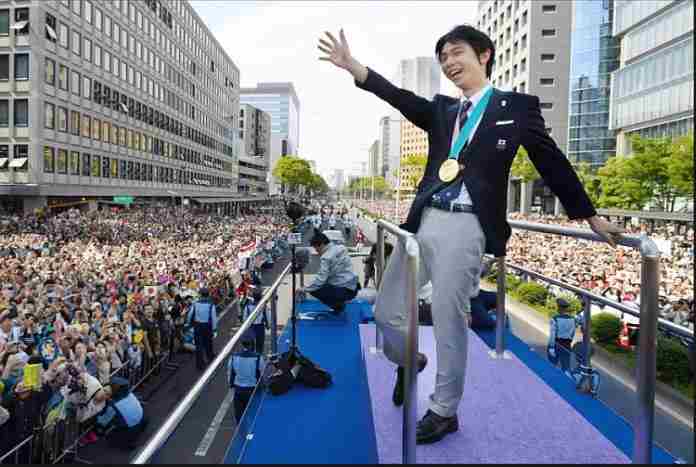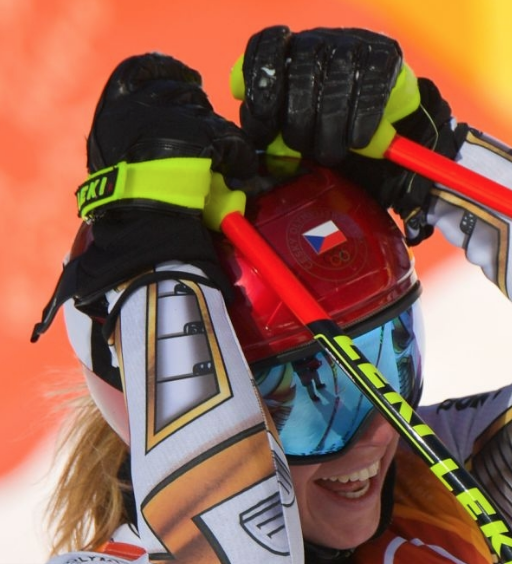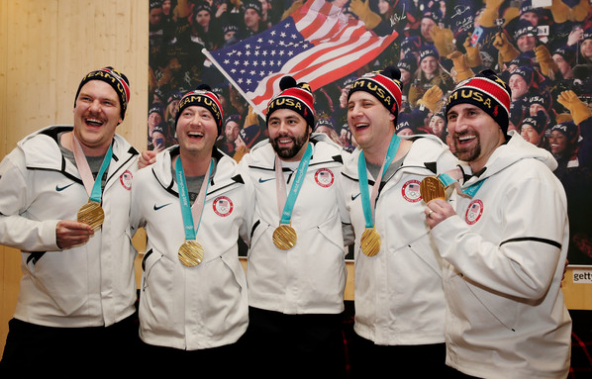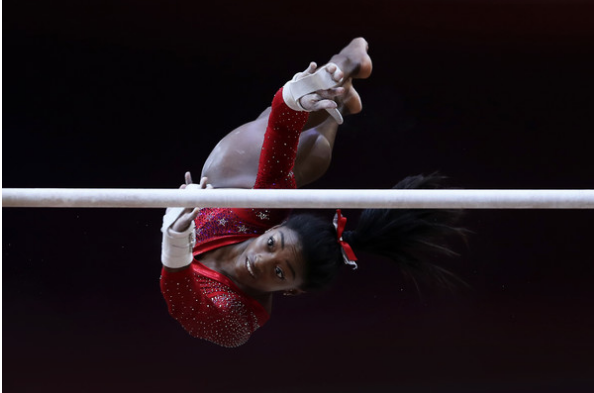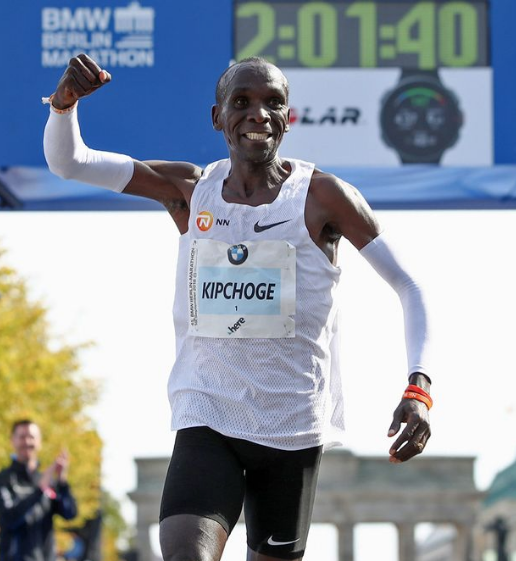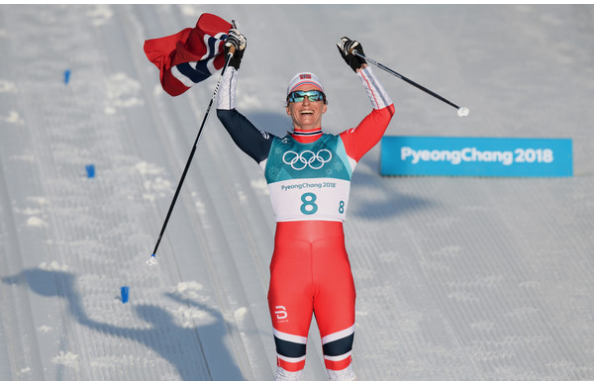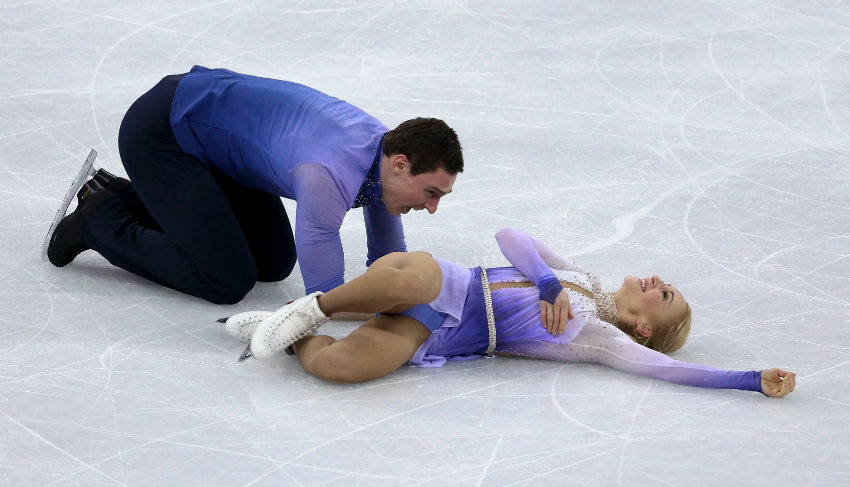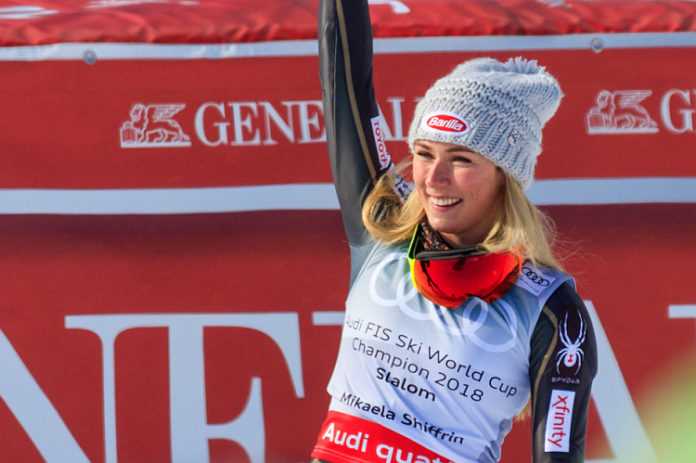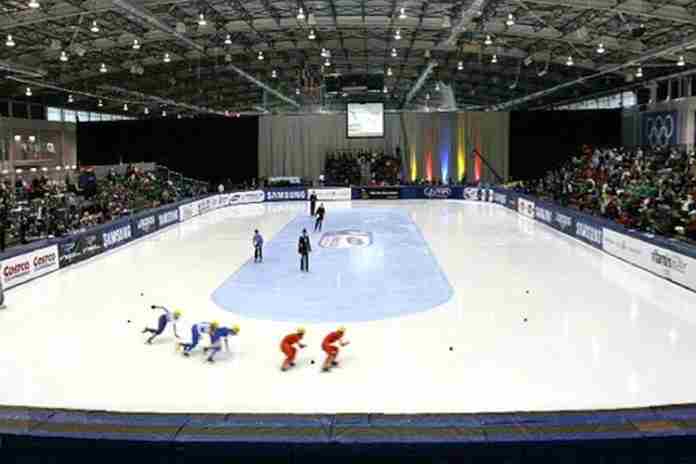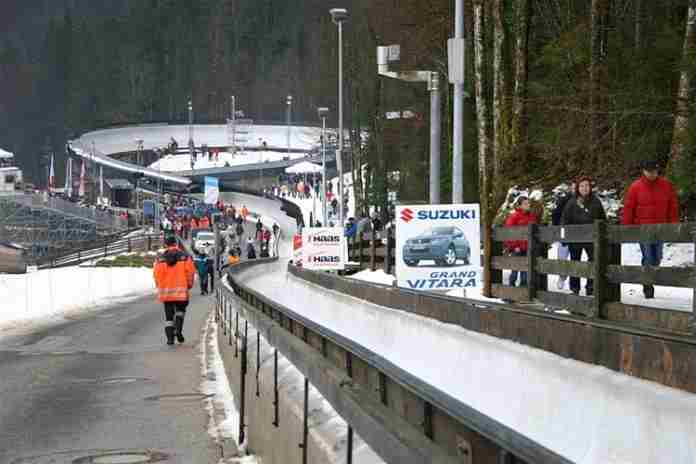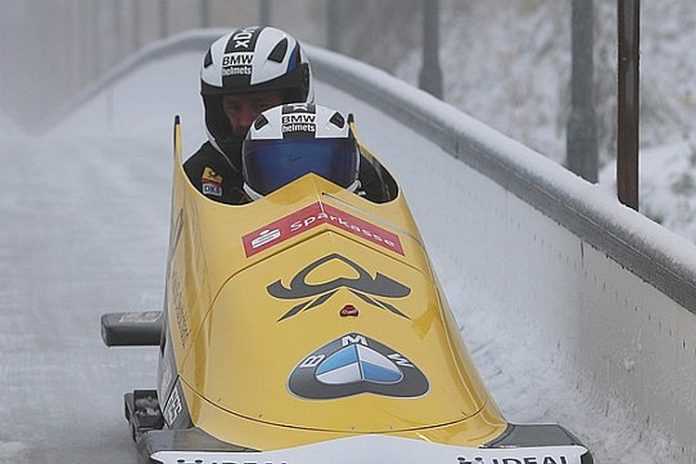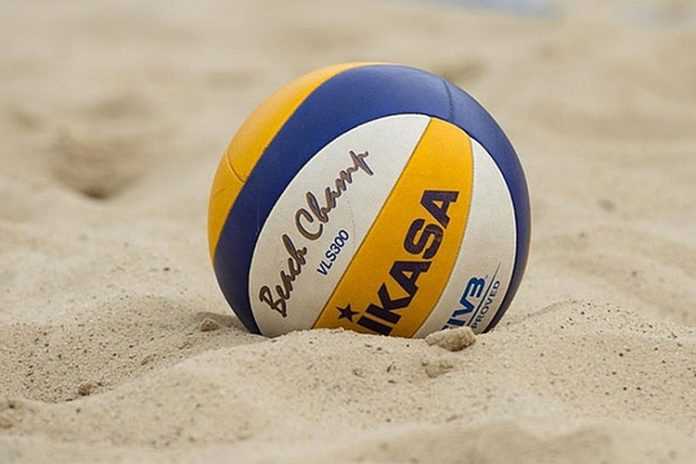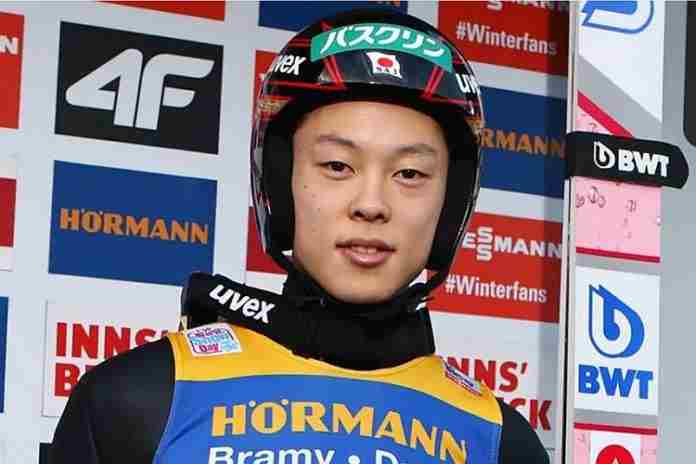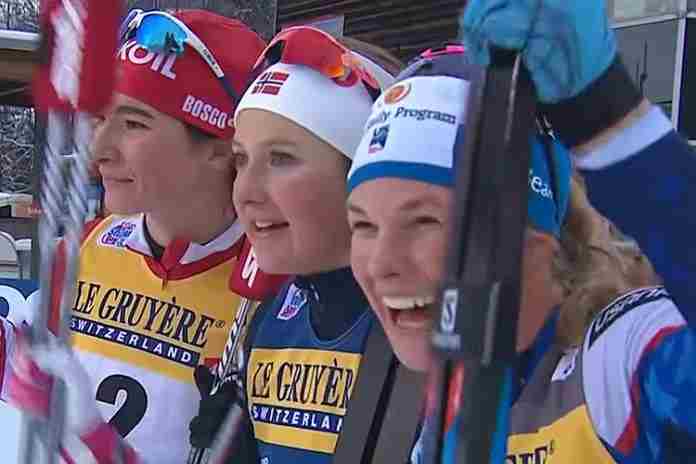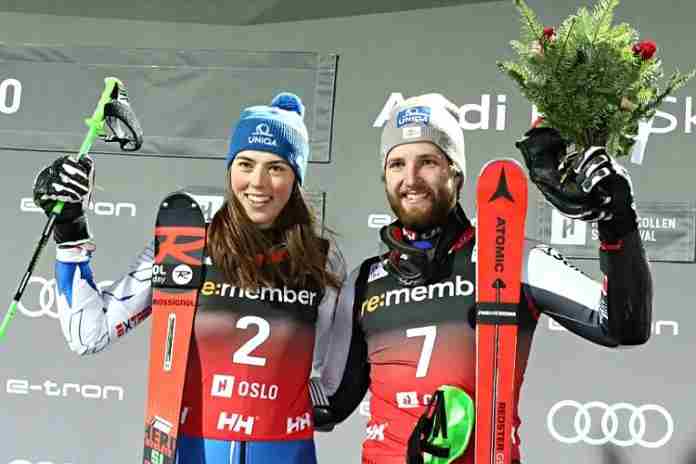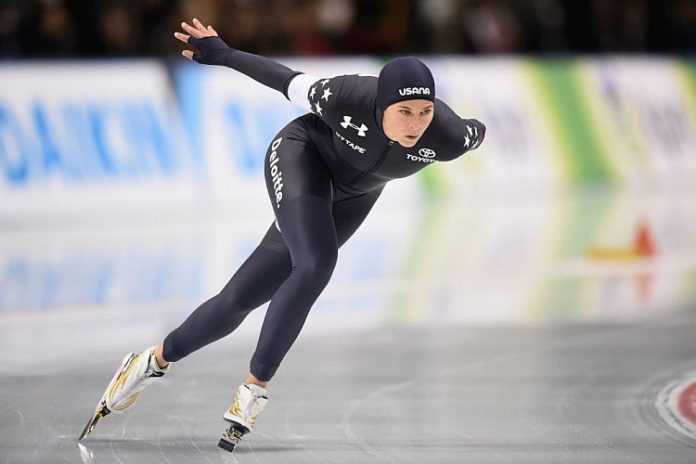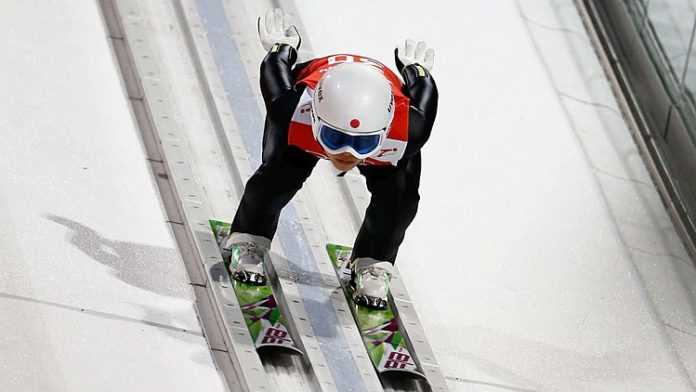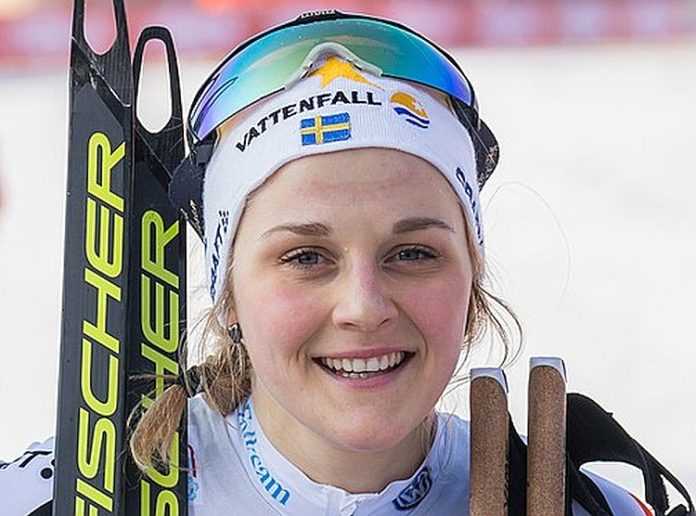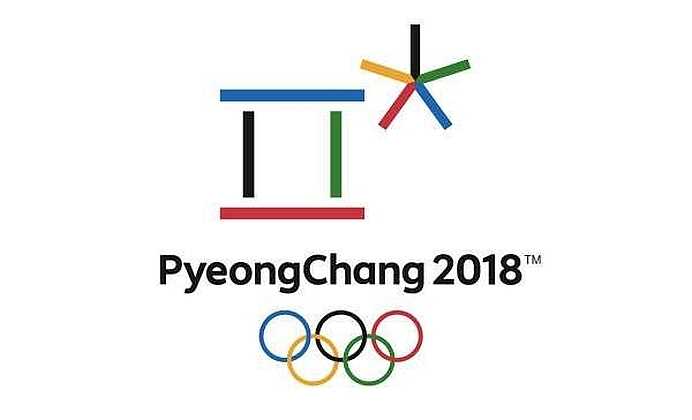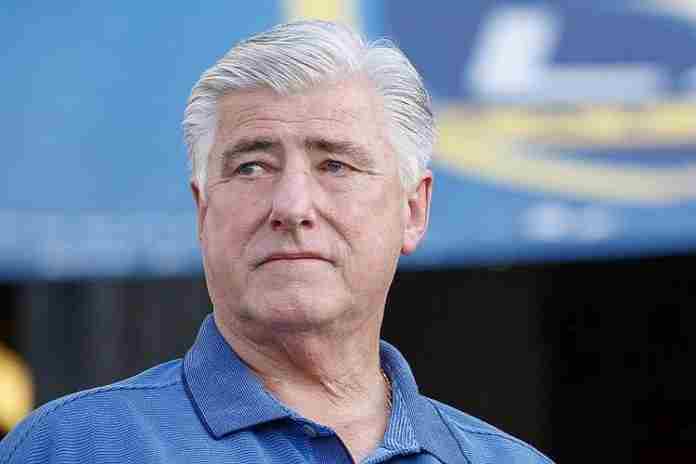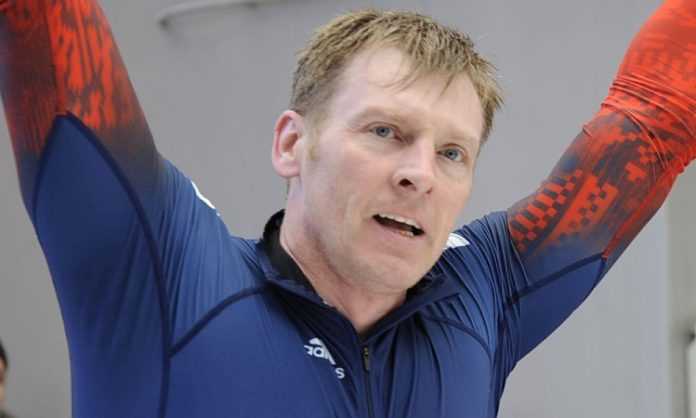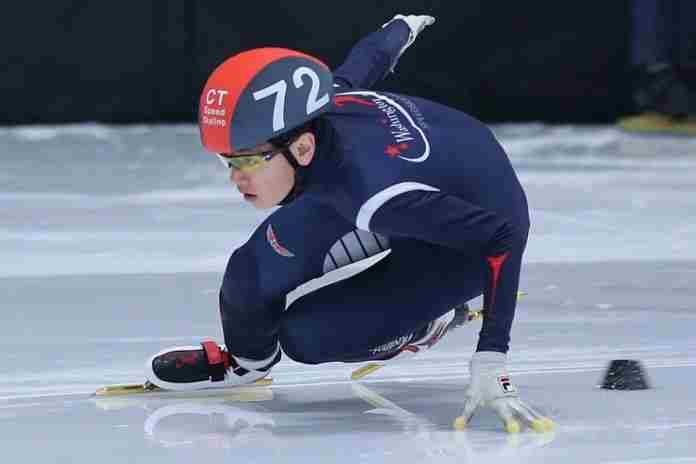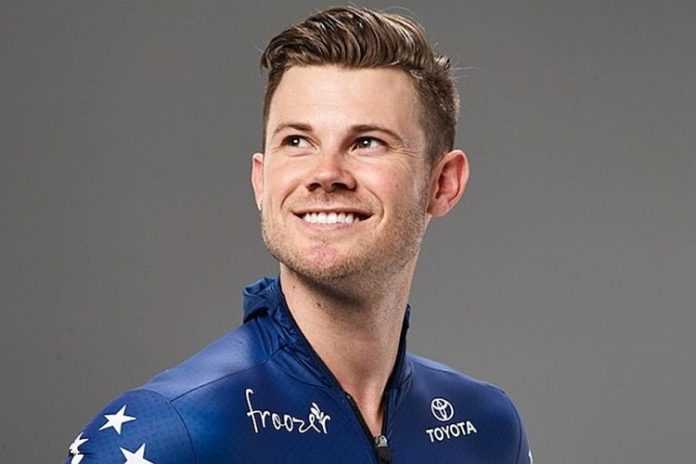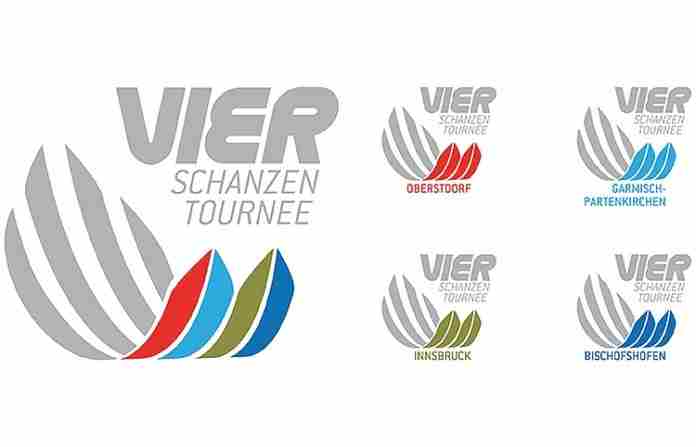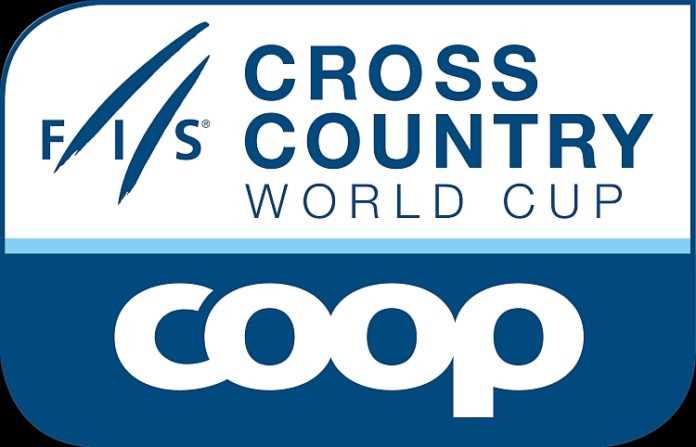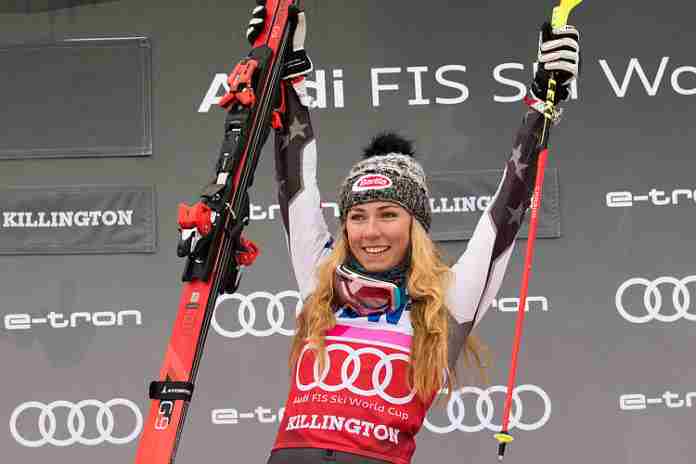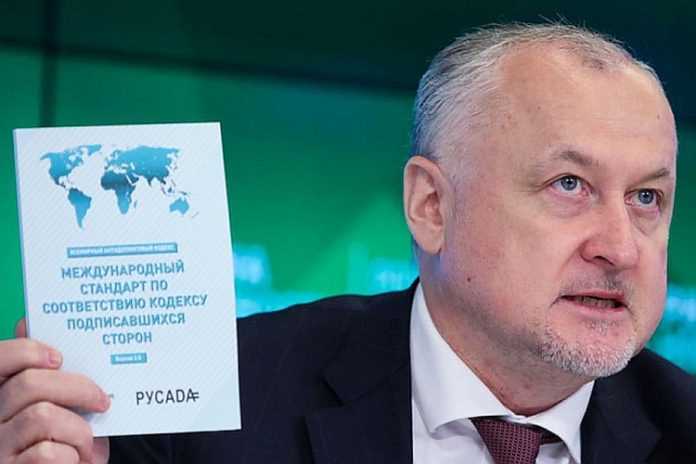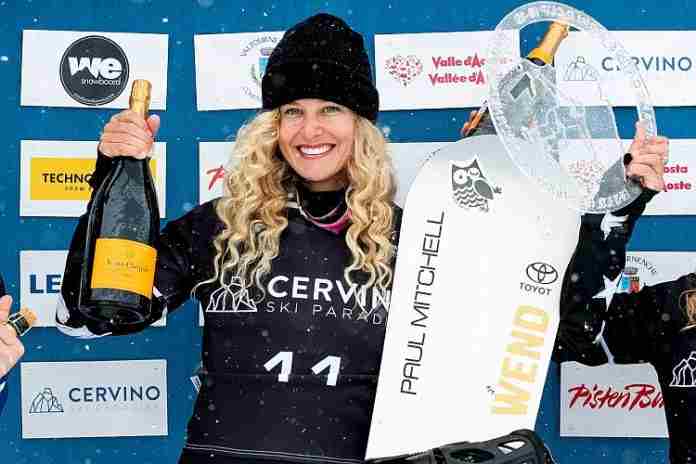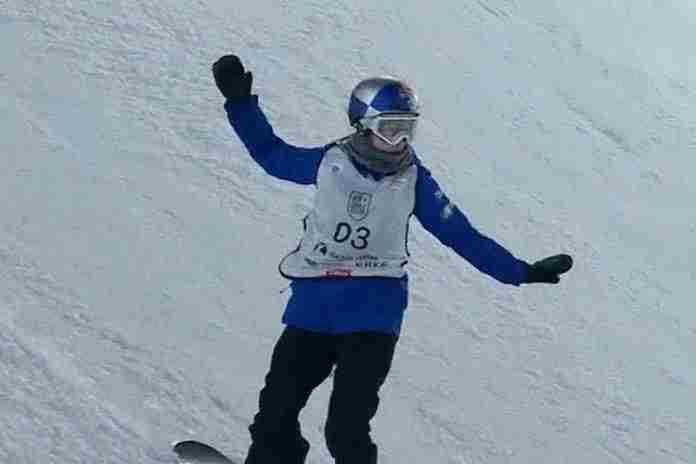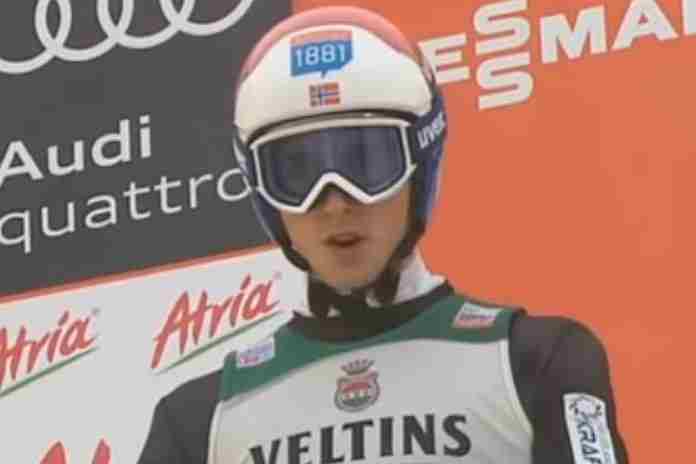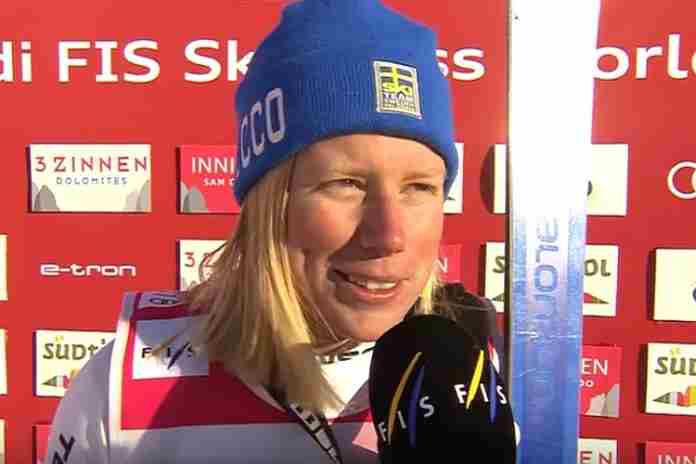As 2018 fades away, what were the top stories of the year in the Olympic Movement, both in the U.S. and worldwide? We found a mix of on-field heroics and off-field tumult.
We shared no. 10-6 in our last issue, so here are the top five stories of the year, counting down from no. 5 to no. 1:
5. Football: Les Bleus by far the best in Russia
The 2018 FIFA World Cup was one of the highlights of the year, and after all of the concerns about whether Russia would be ready, the tournament was terrific.
On the field, the event was dominated by Europe. Ten of the 16 teams in the knock-out round came from Europe, with four from South America. The quarterfinals had six European teams and two from South America and the semifinalists were all European squads: France, Belgium, Croatia and England.
France shut down the highest-scoring team up to that point, the Belgians, 1-0, and Croatia – the surprise team of the tournament – edged England, 2-1 in extra time.
In the final, France took control in the middle of the first half and had a 2-1 lead at the break thanks to a penalty shot from Antoine Griezmann. Paul Pogba’s left-footed laser in the 59th minute gave the French a two-goal lead and Kylian Mbappe’s right-footed shot sailed into the Croat goal in the 59th minute for a 4-1 lead. Croatia had a late goal to make the final score 4-2.
Croatia’s Luka Modric won the Golden Ball Award as the best player in the event, and England’s Harry Kane won the Golden Boot as the top scorer, with six goals.
Attendance was excellent at 3.03 million and the television production was superb. But even for the victorious French, the celebration was short-lived, as Belgium ended the year as the top team, by a point, in the FIFA World Rankings!
4. Doping: What about Russia?
One of the dominant stories of 2018 was doping … again. And it’s not going away.
In response to the Russian doping scandal which broke open in 2015, Russian participation in February’s 2018 Olympic Winter Games was “held down” to 168 invitees, who competed under the name of “Olympic Athletes from Russia.”
That hardly satisfied those who wanted the International Olympic Committee to ban the Russians en toto from PyeongChang. The same folks were absolutely enraged when the IOC reinstated the Russian National Olympic Committee to normal status a few days after the Games, even though the Russians had two doping positives at the Games.
The question of Russia simmered throughout the summer, then exploded once again in September, when the World Anti-Doping Agency provisionally reinstated Russia as compliant with the World Anti-Doping Code. The reinstatement was met with enormous protest from athletes and other anti-doping organizations, but WADA persisted, requiring only that the Russian provide the complete database of its Moscow laboratory by the end of the year and the samples stored in the lab for re-testing as required by the middle of 2019.
As the year ends, a WADA technical mission to Moscow was refused full access to the database, but the Russian government says it is working on the “problem.” But now the pressure has ramped up again on WADA to suspend Russia again, starting with a meeting of its Compliance Review Committee on 15-16 January.
This isn’t over and the issue is not going to settled anytime soon.
In the meantime, a noteworthy exception to the “all is well” stance of nearly all of the international sports federations has been the International Association of Athletics Federations (IAAF), which has maintained a rigid suspension of the Russian Athletics Federation, subject to obtaining possession itself of the Moscow Lab database and samples.
3. Athletics: Astonishing world records from Chepkoech and Kipchoge
Two Kenyan distance stars wrote their names on the world record lists with amazing performances that stunned the track & field world in 2018.
First came Beatrice Chepkoech, fourth at the 2016 Rio Games and 2017 World Championships in the 3,000 m Steeplechase. After a silver medal in the Commonwealth Games in the 1,500 m, she started indifferently in the IAAF Diamond League, winning the Steeplechase in Shanghai (9:07.27), but finishing fifth in Rome (9:15.85).
But as the summer came on, so did she. Chepkoech beat an excellent field in Paris in 8:59.36 and in a race that every important steepler was pointing for, she ran away from everyone in the Herculis meet in Monaco on 20 July. Her pace was so fast that no one dared follow and appeared suicidal.
But she never let up and obliterated the world record of 8:52.78 by Ruth Jebet (BRN) and finished in 8:44.32, beating second-place Courtney Frerichs of the U.S. (9:0085, an American Record) by more than 16 seconds!
Just to show that this was no fluke, Chepkoech ran the no. 3 time in history (8:55.10) to win the Diamond League Final in Brussels (BEL)!
Kipchoge had been on a collision course with the marathon world record since he ran 2:03:05 to win in London in 2016, presaging his Olympic victory in Rio later that year. His 2:00:25 time trial run in 2017 only underscored his ability to break Dennis Kimetto’s 2:02:57 mark in Berlin in 2014.
He served notice that 2018 could be his year with a 2:04:17 win in London in April and when he announced he would run on the flat course in Berlin once again – his fourth race there in six years – the world record was under siege.
And Kipchoge produced, running a carefully-paced race that ended in a world record of 2:01:39, shattering Kimetto’s mark and giving Kipchoge an astonishing nine straight marathon wins and 10 wins in 11 career marathons. It’s hard to say that he’s anything other than the greatest marathoner in history.
And he’s not done; at 34, he has the 2020 Tokyo Games very much in mind.
2. Olympic Games: More public rejection of the 2026 Winter Games
International Olympic Committee president Thomas Bach (GER) has made the point that the future of the Olympic Games is assured well into the future with the assignment of the 2024 Games to Paris and the 2028 Games to Los Angeles.
True, but things were rough in 2018 for the 2026 Olympic Winter Games, scheduled to be attributed in 2019.
In 2018, what appeared to be a solid line-up of candidates simply vaporized:
∙ Sion (SUI) ~ candidature ended with a 54-46% loss in a June referendum on public funding;
∙ Graz (AUT) ~ withdrew in July, due to a lack of support from the provincial government;
∙ Sapporo (JPN) ~ withdrew in September, preferring to bid for the 2030 Winter Games;
∙ Erzurum (TUR) ~ rejected by the IOC in view of extensive infrastructure needs;
∙ Calgary (CAN) ~ withdrew in November after a 56-44% defeat of a referendum on bidding.
Other cities had withdrawn in 2017, or preferred to wait for the 2030 Games for their own reasons. The only cities left to bid for 2026 as of the end of this year as a combined Milan-Cortina d’Ampezzo bid from Italy, and a bid from Stockholm (SWE). Neither has funding support from their national governments and Stockholm’s position is especially fragile since the country has no ruling coalition at present after indecisive elections.
Bach has said that if the Milan-Cortina and Stockholm bids fall apart, there is no “Plan B,” but the U.S. Olympic Committee designated Salt Lake City, Utah – host of the highly successful 2002 Winter Games – as the American bid city for a “future” Winter Games. Subject to an agreement with the Los Angeles hosts for 2028, the IOC may have to look there sooner than expected.
1. Gymnastics: The Nassar scandal overwhelms the U.S. Olympic Movement
Without a doubt, the top story of 2018 in Olympic sport was the expanding impact of the Larry Nassar sex-abuse scandal in the United States, with reverberations felt around the world.
At the start of the year, Nassar himself was sentenced to essentially life-in-prison in two separate actions in Michigan state courts in Ingahm County (40-175 years) and Eaton County (40-125 years). These are on top of a 2017 conviction in Federal court for child pornography that earned him three consecutive 20-year sentences.
But the removal of Nassar from society was only the start:
∙ January:
The U.S. Olympic Committee demanded the resignation of the entire Board of Directors of USA Gymnastics, all of whom did resign.
∙ February:
USOC chief executive Scott Blackmun, undergoing treatment for prostate cancer – but also under pressure from allegations that the USOC did not respond promptly or properly to reports of Nassar’s abuse – resigned.
Olympic gold medalist Aly Raisman filed suit against USA Gymnastics and the USOC for insufficient action against abuse; her suit has been followed by many others.
∙ April:
The U.S. Senate Commerce, Science, and Transportation Subcommittee on Consumer Protection, Product Safety, Insurance, and Data Security held its first hearing on sexual abuse against Olympic athletes, including testimony from multiple survivors.
∙ May:
The U.S. House Energy & Commerce Committee subcommittee on Oversight & Investigations held a televised hearing on the U.S. Olympic community’s ability to protect athletes from sexual abuse. The witnesses included acting USOC chief executive Susanne Lyons, USA Gymnastics chief executive Kerry Perry, USA Swimming chief executive Tim Hinchey, U.S. Center for SafeSport director Shellie Pfohl and others.
∙ June:
The U.S. Senate subcommittee’s second hearing was held on 5 June and included testimony from former USA Gymnastics Women’s Program Director Rhonda Faehn, former Michigan State University President Lou Anna Simon and former USA Gymnastics chief executive Steve Penny, who exercised his Fifth Amendment rights against self-incrimination and did not answer any questions.
∙ July:
The U.S. Senate subcommittee’s third hearing included Lyons, Perry and Athletes’ Advisory Council chair Han Xiao as witnesses.
∙ September:
USA Gymnastics chief executive Perry resigned, under pressure for not moving quickly enough to bring change and respectability back to the organization.
∙ October:
USA Gymnastics selected for U.S. Rep. Mary Bono as interim chief executive, but she resigned in the face of criticism over her ties with a law firm which had been involved in the Nassar scandal.
Former USA Gymnastics chief executive Steve Penny was arrested on a charge of evidence tampering in Texas; he has pled not guilty.
The U.S. Senate subcommittee’s fourth hearing focused on abuse prevention efforts, with testimony from the chief executives or Board chairs from U.S. National Governing Bodies for Bobsled & Skeleton, Figure Skating, Swimming and Weightlifting.
∙ November:
When the new Board of USA Gymnastics did not voluntarily agree to have the entity de-certified as the U.S. National Governing Body for the sport, the USOC began the process of de-certification.
∙ December:
USA Gymnastics filed for Chapter 11 (voluntary) bankruptcy in order to reorganize its affairs and move the management of the many lawsuits against it from courts across the country to the U.S. Bankruptcy Court in Indiana.
A long-awaited report from the Ropes & Gray law firm, commissioned by the USOC, painted a devastating, detailed portrait of lax response by USA Gymnastics and the USOC to direct allegations of athlete abuse going back to the 1990s.
Based on information contained in the Ropes & Gray report, the Senate subcommittee referred to the Justice Department a potential case of making false statements to the Congress by Blackmun, based on written testimony he filed earlier in the year.
The worst part is that this story continues to develop and will be with us well into 2019 and likely into 2020 as well. Not at all settled at the end of 2018 is what the Congress will do regarding changes to the Ted Stevens Olympic and Amateur Sports Act, which governs the U.S. Olympic Movement.
For all the wrong reasons, it was the no. 1 story of the year in the Olympic Movement, worldwide.
What will 2019 bring? More on that coming up, but for now, a very happy and healthy New Year’s wish for all of our readers!
Rich Perelman
Editor





















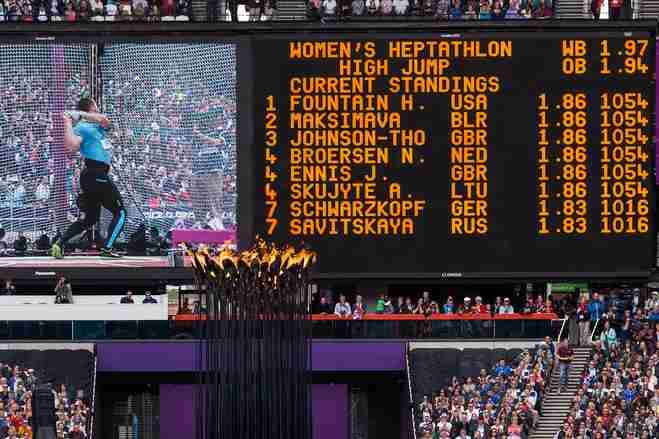
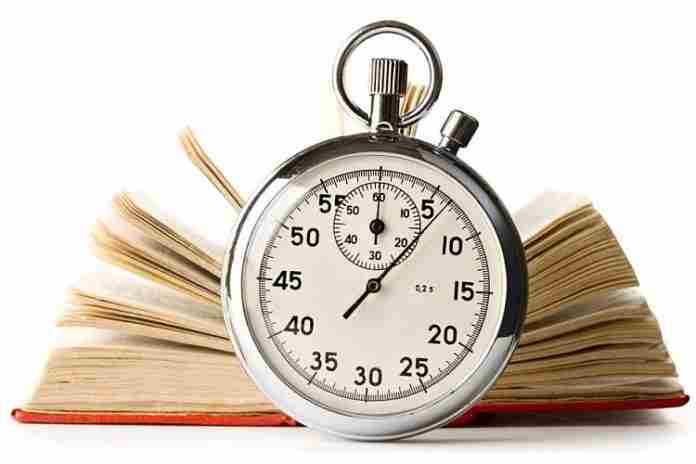

 There will be plenty of off-the-field antics to follow in 2019, like doping and the continuing fallout from the Larry Nassar scandal, but how about on the field?
There will be plenty of off-the-field antics to follow in 2019, like doping and the continuing fallout from the Larry Nassar scandal, but how about on the field?